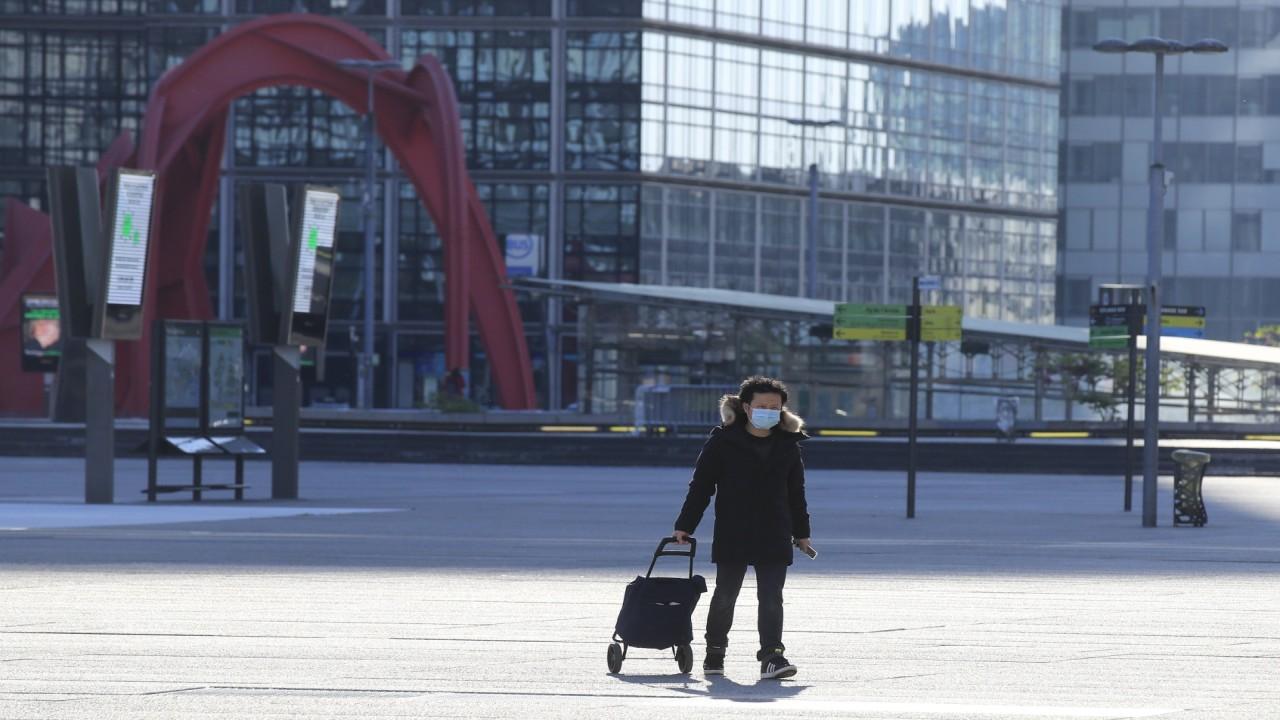World Bank cancels flagship ‘doing business’ report after investigation
Probe faults leaders including Kristalina Georgieva, now IMF managing director, who disagrees with findings
Coronavirus will push 50M people into 'extreme poverty': World Bank president
David Malpass on finance during coronavirus
The World Bank canceled a prominent report rating the business environment of the world’s countries after an investigation concluded that senior bank management pressured staff to alter data affecting the ranking of China and other nations.
The leaders implicated include then World Bank Chief Executive Kristalina Georgieva, now managing director of the International Monetary Fund, and then World Bank President Jim Yong Kim.
The episode is a reputational hit for Ms. Georgieva, who disagreed with the investigators’ conclusions. As leader of the IMF, the lender of last resort to struggling countries around the world, she is in part responsible for managing political pressure from nations seeking to advance their own interests. It was also the latest example of the Chinese government seeking myriad ways to burnish its global standing.
The Doing Business report has been the subject of an external probe into the integrity of the report’s data. On Thursday, the bank released the results of that investigation, which concluded that senior bank leaders including Ms. Georgieva were involved in pressuring economists to improve China’s 2018 ranking. At the time, she and others were attempting to persuade China to support a boost in the bank’s funding.
The Chinese Embassy in Washington didn’t respond to a request for comment. Mr. Kim didn’t respond to an email seeking comment.
Ms. Georgieva said: "I disagree fundamentally with the findings and interpretations of the Investigation of Data Irregularities as it relates to my role in the World Bank’s Doing Business report of 2018."
The Doing Business report has been a flagship publication for the World Bank, which conducts economic research alongside its primary work of providing financing in poor countries. The report’s annual release drew media coverage around the world, and countries jockeyed to improve their ranking by making policy changes.
THESE 26 STATES ARE ENDING $300 UNEMPLOYMENT BENEFITS - HERE'S WHEN
For years, the report was viewed as a success because it motivated governments to improve the ability of businesses to obtain licenses, connect to electricity or easily pay their taxes—all factors considered in the rankings.
Chinese officials in 2017 and 2018 were eager to see their ranking improve, and so Mr. Kim and Ms. Georgieva and their staff held a series of meetings to discuss ways that the report’s methodology could be altered to improve China’s rankings, according to the investigative report by the law firm WilmerHale.
The World Bank was in the middle of difficult international negotiations to receive a $13 billion capital increase. Despite being the world’s second largest economy, China is the No. 3 shareholder at the World Bank, following the U.S. and Japan, and Beijing was eager to see its power increased as part of a deal for more funding.
In October 2017, Ms. Georgieva convened a meeting of the World Bank’s country director for China, as well as the staff economists that compile Doing Business. She criticized "mismanaging the Bank’s relationship with China and failing to appreciate the importance of the Doing Business report to the country," according to the investigative report’s summary of the meeting.
An unidentified lead staffer working on Doing Business suggested they could raise China’s ratings by dropping data from either Beijing or Shanghai, since China’s ranking combined data from both cities. Ms. Georgieva asked for a simulation of that strategy, the investigative report said.
The staff later determined the change wouldn’t have the desired effect, investigators said. Other countries’ ratings would benefit as well, reducing the improvement in China’s rating.
Ultimately, the team identified three data points that could be altered to raise China’s score, the investigative report said. For example, China had passed a law related to secured transactions, such as when someone makes a loan with collateral. The World Bank staff determined it could give China a significant improvement to its score for legal rights, citing the law as the reason.
GET FOX BUSINESS ON THE GO BY CLICKING HERE
World Bank employees knew the changes were inappropriate but "a majority of the Doing Business employees with whom we spoke expressed a fear of retaliation," the investigative report said.
Although the data-gathering process for the 2018 report was finished, the World Bank’s economists reopened the data tables and altered China’s data, the investigative report said. Instead of ranking 85th among the world’s countries, China climbed to 78th due to the alterations. A series of smaller changes detailed in the investigative report also affected the rankings of Azerbaijan, the United Arab Emirates and Saudi Arabia.
When Ms. Georgieva was informed of the changes, investigators said, she thanked one of the senior Doing Business leaders for doing his "bit for multilateralism."
In April of 2018, the U.S., China and other member countries finalized the deal to boost the World Bank’s funding. It isn’t known how much the ranking improvement factored into China’s support. The country had long signaled support for the World Bank’s capital increase.
The Treasury Department, which oversees U.S. participation in the IMF and World Bank, expressed its concern with the investigative report’s findings. The IMF and World Bank are collectively owned by member nations and for both institutions, the U.S. Treasury has the largest ownership stake.
"These are serious findings and Treasury is analyzing the report," said Treasury spokeswoman Alexandra LaManna. "Our primary responsibility is to uphold the integrity of international financial institutions."
Justin Sandefur, a senior fellow at the Center for Global Development think tank who has long criticized the Doing Business report, said: "You had enormous discretion by World Bank staff combined with super high stakes for World Bank client countries getting named and shamed in the media, and it was just a recipe for political interference."
Concerns about Doing Business first became public in 2018 when the World Bank’s chief economist, Paul Romer, said in an interview with The Wall Street Journal that he was concerned the report was susceptible to campaigns to alter its data for political purposes. Mr. Romer said that he lacked confidence in a series of methodological changes to the report that had improved the ranking of Chile under conservative governments, but hurt its ranking under socialist governments.
CLICK HERE TO READ MORE ON FOX BUSINESS
The World Bank denied that the report had been manipulated, and Mr. Romer resigned shortly afterward. He said at the time that he believed the World Bank’s role as an honest broker of economic reports such as Doing Business was in fundamental conflict with its diplomatic mission.
Following the discovery of the additional data irregularities in 2020, the bank halted publication of the report—initially just temporarily—and commissioned the external investigation.
World Bank announces $12B in immediate financing to help combat coronavirus-infected countries
World Bank immediate financing






















